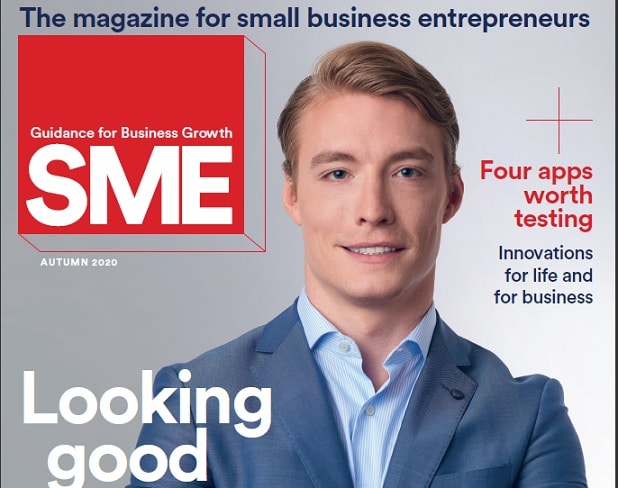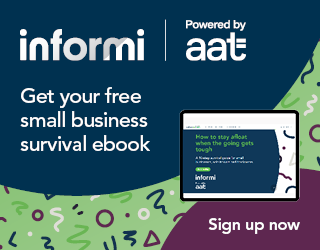By John Auckland, above, founder, TribeFirst
It’s difficult to overstate the challenges facing many UK businesses as we navigate through these turbulent times. The cost-of-living crisis, driven by rising prices including energy costs, combined with high levels of inflation are turning the screws for consumers as well as many companies.
The current landscape is making life even more difficult for emerging start-ups and scale-ups, which require external investment to help them reach their full potential. High inflation can prove a barrier to investors as the impact of a sluggish economy is expected to be reflected in revenue forecasts, growth rates, and company valuations. Painting an optimistic and bullish vision of the future that investors buy into and back is much tougher.
Despite these concerns, there still appears to be a strong appetite among UK SMEs to invest in growth. Research released last summer by Close Brothers Asset Finance and Leasing reported that two-thirds of businesses will be seeking investment in the next 12 months.
While TribeFirst has proudly supported over 120 businesses to raise in excess of £ 60 million in growth investment since 2015, there’s no doubt that the current economic climate is making it far tougher for companies to secure external capital.
Company founders need more support than ever when embarking on this journey if they are to achieve their ambitions.
In this era of high inflation, growth-focused businesses looking for investment should ensure they are SEIS or EIS-registered. These UK schemes are designed to help derisk inherently risky investments – to the benefit of the wider economy – and are open to most businesses. SEIS and EIS classification is the only means investors have to shield themselves from rising inflation through investing in capital gains tax-shielded assets, they offer protection through loss relief if shares are disposed of at a loss, and the immediate incentive of income tax relief.
There have also been a number of recent changes made to SEIS which should help more early-stage businesses. Companies can now raise £250,000 through in SEIS, an increase of £100,000, and they can now do so in the first three years of trading, giving them an additional year on the previous two-year limit. The threshold for company assets for SEIS-qualifying businesses has also been increased from £200,000 to £350,000 while the personal investor limit for SEIS has been doubled to £200,000 per year, unlocking more potential investment funds from individuals.
Timing is everything when it comes to raising investment and it’s best to begin this process before the money is needed. Runway, the amount of time a business can stay afloat without extra capital, is a key consideration for investors and can become a serious problem if addressed too late. You’re selling investors an optimistic vision of the future so it’s key to put your best self forwards. Raising off the back of a big piece of news will work in your favour; for example signing a new significant customer, passing a key milestone, or onboarding a new high-profile advisor, can validate the opportunity and shows that you’re already taking tangible steps towards scaling the business.
Some aspects of the round are out of your control and should be factored in as well. This includes the time taken to prepare any materials, and applications for S/EIS which includes the 6-8 weeks HMRC will take to evaluate and grant the classification. Using a partner like SeedLegals can speed up the process and Advanced Assurance, the minimum requirement, is granted far sooner. This is especially relevant for companies looking to crowdfund, given the creation of key assets like the pitch video and the subsequent and unavoidable platform due diligence process will take time to complete.
Taking advice from as many sources as possible is also crucial when preparing for an investment campaign. It’s best to research other successful campaigns online and consider which elements could be incorporated into your own. Identifying your audience and the investors that you want to approach and determining the best ways to communicate with them so they understand a company’s offering are also key at this stage.
Making an initial approach to friends and family for investment is often a sensible course of action. It is, however, important to present a request for money as an opportunity rather than a favour. You might find it awkward asking friends and family to invest in your journey, especially during a cost-of-living crisis, but just imagine the uncomfortable situation a few years down the road after building a successful business when they ask: “why didn’t you come to me for that early investment?”
In any economic climate it’s essential for company founders to be active networkers, seeking out events where they can pitch their business and the investment opportunity it provides. We advise TribeFirst clients to always carry a card or other means of sharing their business and its aims to any potential investors they may meet.
When communicating with investors, we advise company founders to be specific about how they would use any external investment, with timelines accompanying this expenditure. It’s also astute to consider what a potential investor has to offer in terms of their experience, especially where it relates to your own business, as that can provide even greater value than any monetary investment.
Once an investment campaign is live, good communications are a must as this provides an ideal opportunity to market your company to potential investors. This includes posting regular updates to a campaign webpage or via other direct forms of communication about how the investment round is progressing. According to research by leading equity crowdfunding platform Seedrs, around 70% of investors are more likely to re-invest in a company if they receive informative and interesting updates on a regular basis.
While these are challenging times, investors are still out there and seeking opportunities to back the next big enterprise. By perfecting their approach, company founders can succeed in securing growth investment to take their business to the next level, even in this tough marketplace.
John Auckland is founder of TribeFirst, a company which supports start-ups and growth businesses in accessing equity funding




